
This article details the remit of the award, how to register for it and what exactly it covers. This article has been produced in conjunction with the Mountain Leader Training Association (MLTA).
VIDEO: Climbing Wall Award:
The Course
The Climbing Wall Award is the most recent addition to MLTUK's range of awards, designed to cater for the massive rise of climbing and abseiling on artificial walls and structures in recent years. These days, many climbers take their first steps on climbing walls. The range and quality of instruction at UK climbing walls has skyrocketed but, until recently, there was no national qualification aimed specifically at training and assessing climbing wall supervisors and instructors.
Guy Jarvis - Chief Instructor, Undercover Rock
One of the major attractions of the CWA is the focus on the teaching of basic movement skills to new climbers; this development has proven very popular with candidates and the walls that employ them.
The Climbing Wall Award is aimed at standard top-roping and bouldering facilities and focuses on supervision, safety and coaching of movement skills. Some facilities have top access belay and abseil stations, so there is an optional additional 'bolt-on' module for supervising at these venues.
Courses are run over a weekend or a series of evening sessions.
With assistance from MLTUK guidelines, many local authorities have developed their own site-specific schemes to train and assess climbing wall supervisors. Those who have completed such schemes can apply for exemption from the CWA training course and proceed straight to assessment.
NB For the purposes of the CWA, a climbing wall is:
• An artificial structure, designed for the purpose of being used for climbing activities (including towers, artificial boulders and mobile climbing walls)
• Indoors or outdoors
• A structure which has safety equipment such as top anchors in place and is maintained through a management regime
A note about charity abseils
Someone who has completed the CWA, including the abseil module, is appropriately qualified to manage individuals taking part in a charity abseil, if the top anchors in place and designed for the purpose. If the anchors need to be put in place and/or are difficult to arrange it may be more appropriate for an MIA, MIC or BMG member to supervise.
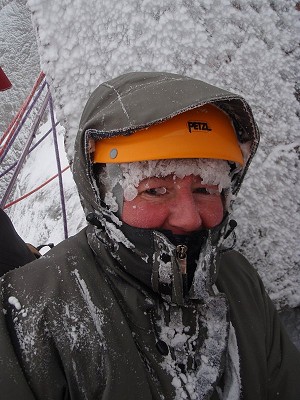
"I was a keen climber when I was younger, but gave it up when I became a working parent. Then when I retired, I went home to Northern Ireland and started working on reception at Tollymore Mountain Centre. My intention was to get back into climbing and outdoor pursuits, and train as an instructor.
I trained for the CWA at the Hot Rock Climbing Wall at Tollymore Mountain Centre. I found the course straightforward. The climbing aspects of the course confirmed and expanded upon what I knew already. The abseil module covered different set ups that you might find on different climbing structures. That part of the CWA is like the SPA in that you have to know how to set up a variety of abseil and belay systems – the difference is that the anchors are provided by the climbing wall so you don't have to find them in rock. I also learnt a lot about group management: for example various ways of warming up climbers under your supervision, and keeping them busy learning new things on the wall.
I've enjoyed teaching and supervising a wide variety of clients over the two years that I've been a CWA instructor. I supervised a team building session for one of Northern Ireland's football teams once, and I've also taught the Roses of Tralee – contestants in an Irish beauty contest. They came in wearing high heels and sashes and I think there might have been some serious nail repair work needed after the session. I also enjoy teaching regular groups and seeing them progress at climbing.
My next mountain award will be the SPA - I'm taking the assessment next weekend."
Sarah Whatmough works at the Tollymore Mountain Centre: www.tollymore.com
How to register:
To qualify for the CWA training course you must be 18 years old, have at least six months climbing experience, have climbed on three different climbing walls on 15 occasions (to include at least one major public venue) and have led climbs indoors. Ideally, you should have a wider knowledge of climbing, including outdoor experience.
When you register for the award, you will get a log book. It's divided into five sections:
• Personal details, contents and endorsement pages
• Course reports and personal profile
• Personal and group-leading experience
• Experience requirements, definitions, sample pages and skills checklist
• Additional training information
Record your experiences in the log book before attending training, so you can show the course director your previous experience. If you've done loads of climbing and/or supervising, just record the information that best demonstrates the breadth of your experience. Once you've passed the course, you can keep the log book updated and use it as a CV.
To get a logbook:
- Contact Mountain Leader Training
- Download the Registration Form
Training, consolidation and assessment
CWA training courses involve 12 hours contact time. The optional abseil module takes four hours. Training courses presume a level of climbing competence, so they focus on skills you would be unlikely to learn by yourself. You'll get feedback as you go, and individual recommendations about what to work on during the 'consolidation period' before you take assessment. There's a skills checklist in your log book, which will also help you plan what to work on before the assessment.
During the consolidation period, work on the new ideas you learnt during training, and broaden your experience by climbing at as many different venues as you can, and assisting other instructors with a range of sessions (top roping, bouldering, young children, etc). The recommendation is that you allow three months before your assessment.
Before the assessment you'll need to be at least 18 years old and have recorded at least thirty visits to at least three different climbing walls. You'll need to have assisted a qualified supervisor on at least 15 instructed sessions on at least two different walls (including a large public facility) in a variety of contexts.
You need to pass the Climbing Wall Award before you can take the abseil module. The minimum contact for the Climbing Wall assessment is six hours and two for the abseil module.
The Syllabus
Climbing Wall Award
TECHNICAL COMPETENCE
- Equipment
- Belaying
- Personal Climbing Skills
- Background Knowledge
THE CLIMBING WALL ENVIRONMENT
- Using Climbing Walls
- Etiquette
SUPERVISION
- Planning
- Organising
- Managing
- Movement Skills
ABSEIL MODULE
- Equipment
- Belaying
- Abseiling
- Management of Groups Accessing the Tops of Walls
Sample Course Outline
Climbing Wall Award Training Course
Day 1 |
Day 2 |
Abseil Module |
|
|
|
Assessment Course:
- Group supervision and management – planning, organising and managing sessions
- Providers may or may not choose to use 'real students' as part of the session.
- Therm-a-Rest Navis Sleeping Bag 7 Jul, 2013
- Polvere Ski Mountaineering Skis 23 Apr, 2013
- Rab Infinity Down Jacket 7 Apr, 2013
- COMPARISON REVIEW: Mountain Hard Shells 4 Apr, 2013
- The Questionable Ethics Of Down Production 10 Jan, 2013
- VIDEO: The 1922 Trek To Everest Base Camp 23 Sep, 2012
- WITH VIDEO: NEW TNF Summit Series Meru Range 12 Sep, 2012
- Autumn/Winter 2012 Polartec NeoShell Mountain Clothing 7 Sep, 2012
- Patagonia Ultralight Down Jacket 5 Jul, 2012
- Barmasse Attempts North Face Of Karakorum's 'Ogre' 21 Jun, 2012

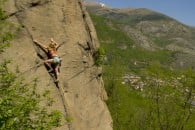

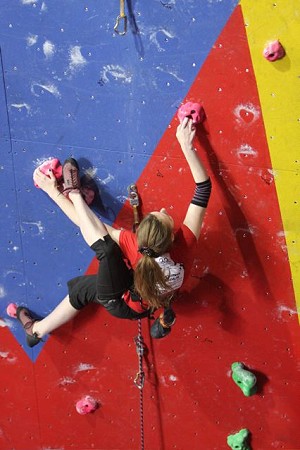





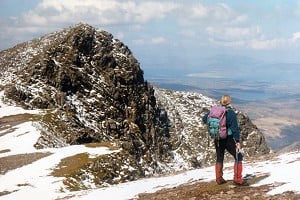
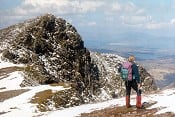
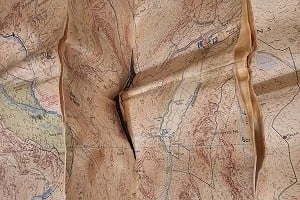
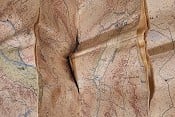


Comments